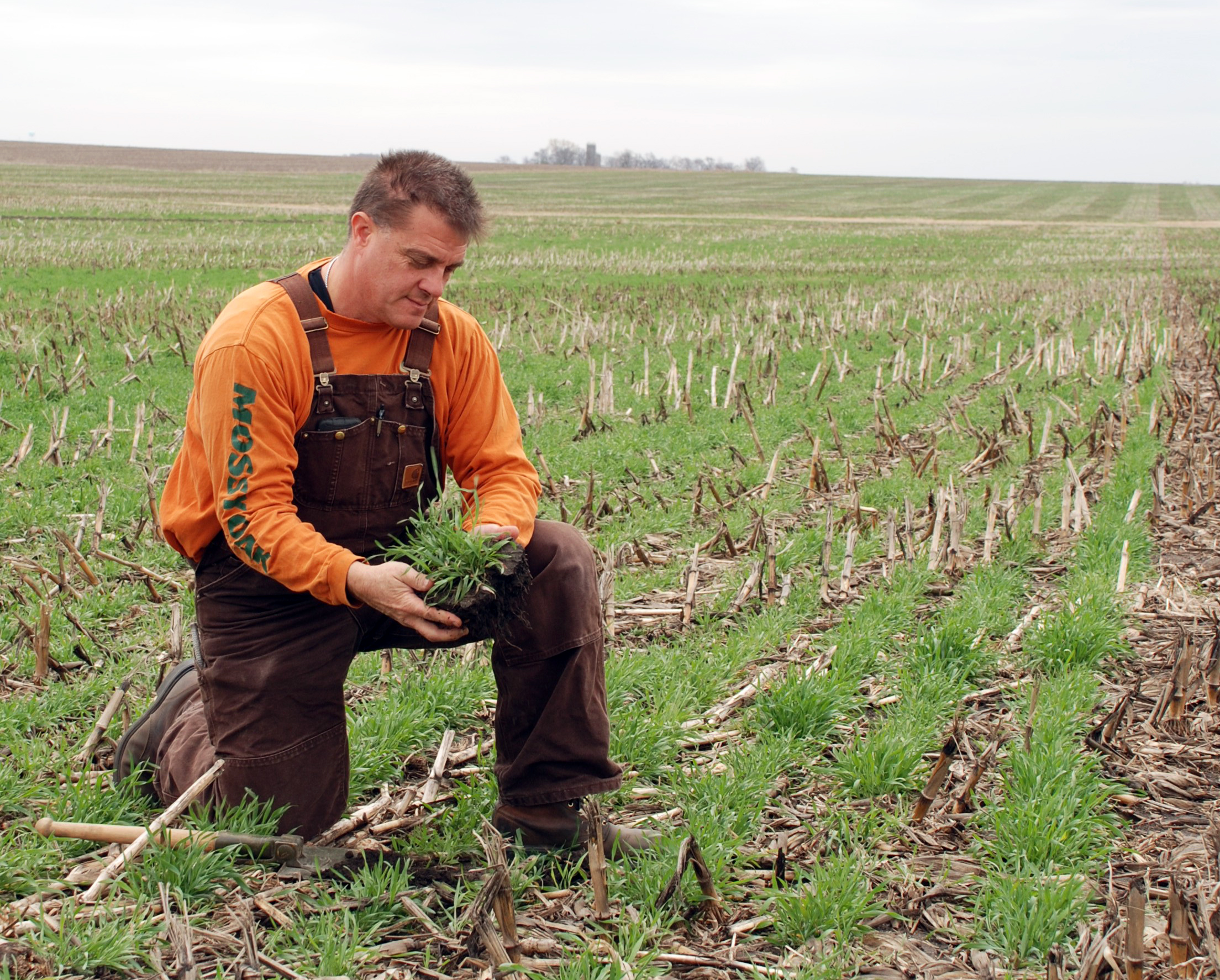
NE Iowa farmer optimistic about future of water quality, soil health after first decade of the Iowa Nutrient Reduction Strategy
By Adam Sodders
ARLINGTON, Iowa (IAWA) – Tim Recker’s family has a long history of crop farming in northeast Iowa’s Fayette County, and he’s adding to that legacy as a leader in on-farm soil and water conservation practices.
Recker and his brother, Jim, farm flat cropland just south of Arlington, close to where open plains meet the rugged hills of Iowa’s Driftless Area. After many years of mostly traditional farming – and small experiments with water and soil conservation practices – Recker decided it was time to scale up.
“It was 2013 when I really started on my quest for no-till, and then cover crops,” Recker said. “That happens to be the same time the Iowa Nutrient Reduction Strategy got started.”
Recker said he encountered the same challenges many farmers face when trying new practices, and his farm was sometimes a topic of morning coffee talk among neighbors. He said the increased support for conservation practices that came with the Nutrient Reduction Strategy (NRS), plus the help of a local mentor, were key to his success today.

One highlight of Recker’s farm is a nearly 21-acre water quality wetland completed a few years ago. Aaron Anderson, Fayette County district conservationist for the USDA’s Natural Resources Conservation Service (NRCS), said the wetland collects water from 716 acres of tile-drained cropland.
“It’s a larger restoration,” Anderson said, adding the wetland’s impact will only grow stronger with time. “It’s fairly young yet, but here in the next few years we expect it to be functioning at a pretty high level.”
Recker said the wetland combines well with the other conservation practices on his farm, including strategically placed pollinator plants and buffer strips, saturated buffers, and other water control structures.
Ten years after the start of the Iowa Nutrient Reduction Strategy, the groundwork to scale up these practices on other farms has been laid. For example, 72 wetlands are in various stages of development as of spring of 2023.
As Iowa’s Deciding Decade closes, Recker said he will keep working toward the NRS nutrient loss reduction goals in the next 10 years and beyond. A key part of that work will be encouraging fellow farmers to try out new practices, and Recker said he hopes to see some kind of conservation practice used on at least 80% of Fayette County farms.
Recker said farmers must be able to experiment and pick the right practices for their farm, just like he did at the start of his conservation quest. Around the small town of Arlington, signs are encouraging.
“We changed our mindset, going from full tillage and no cover crops to no-till and all cover crops,” he said. “Now, there’s a little circle around us who do cover crops, and it’s growing.”
_____________________________________________________________________________________________________________________
SPECIAL NOTE FROM IAWA: Want a closer look at the exciting water & soil health practices used at Tim Recker’s farm? Join us at 5197 I Ave, Arlington, IA on Friday, May 5 from 11 a.m. to 1:30 p.m. as we recognize the 10th Anniversary of the Iowa Nutrient Reduction Strategy. This field day, sponsored by IAWA and Iowa Corn, will feature planter rides, expert speakers, food, and refreshments. We hope to see you out there! If you plan to attend this event, please RSVP today.
Published Friday, April 28, 2023
